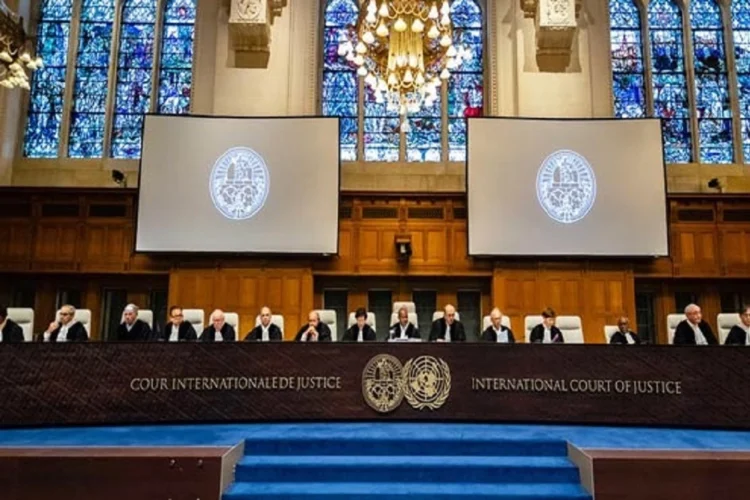ISLAMABAD (Web-Desk); In a historic decision, the International Court of Justice (ICJ) has ruled that countries are legally obligated under the Paris Agreement to limit the global temperature increase to 1.5°C above pre-industrial levels. Issuing its first-ever advisory opinion on climate change and the duties of states, the court asserted that nations failing to meet this target may face legal consequences. These could include revising climate policies, providing guarantees against future violations, or offering compensation for environmental harm.
As reported by German broadcaster DW, ICJ President Judge Nawaf Salam underscored that greenhouse gas emissions are directly linked to human activity and that their impacts are not confined by borders. He warned that climate change presents an existential threat and stressed the legal duty of countries to cooperate and adopt ambitious national climate action plans.
Vishal Prasad, Director of Pacific Islands Students Fighting Climate Change, described the ruling as a “lifeline of hope” for vulnerable nations. He applauded the historic contribution of small island states in pushing the case, saying the ruling could reshape how governments view their legal responsibilities.
Former UN Human Rights Chief Mary Robinson hailed the judgment as a “powerful legal tool for humanity,” calling it a defining moment for climate justice led by the youth and Pacific nations.

























